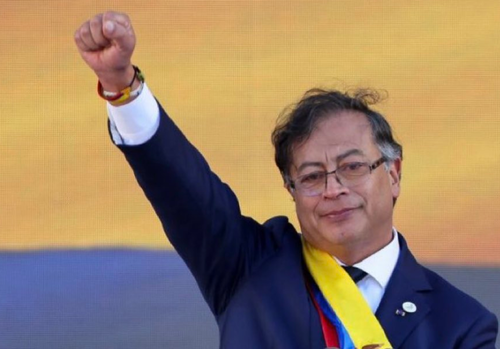The Trump administration has recalled its top diplomat in Colombia, John McNamara, for “urgent consultations” following what it described as “baseless and reprehensible” comments from senior Colombian officials. Although the State Department did not specify which remarks triggered this move, it signaled that further actions are anticipated. In a reciprocal gesture, Colombian President Gustavo Petro has recalled his country’s ambassador to the U.S., emphasizing the need to reassess the bilateral relationship.
Tensions between the two nations have been escalating, particularly following the recent shooting of opposition Senator Miguel Uribe. U.S. Secretary of State Marco Rubio attributed the incident to inflammatory rhetoric from Colombia’s far-left government. Earlier this year, President Petro’s refusal to accept deportation flights from the U.S. led President Trump to threaten tariffs and sanctions, though that particular dispute was eventually defused.
Deteriorating Security and Diplomatic Fallout
The diplomatic fallout has already claimed a casualty, with Colombian Foreign Minister Laura Sarabia resigning amid the escalating tensions. This deterioration in bilateral relations comes as Colombia’s security situation worsens under President Petro’s leftist regime. Once a steadfast ally of the U.S., Colombia is now grappling with rising crime and chaos, marked by a significant increase in coca cultivation.
Coca cultivation rose 10% last year to 253,000 hectares, enough to produce over 2,600 tons of cocaine.
The National Liberation Army (ELN) has taken advantage of this boom, seizing control of the Catatumbo region near the Venezuelan border, a notorious drug corridor. Petro’s “total peace” policy, which focuses on negotiating with drug cartels, has deeply frustrated the Trump administration. The U.S. has been actively working to dismantle cartel networks across the Americas to curb the flow of illicit drugs into its borders.
Underlying Causes and Consequences
According to Bloomberg, citing sources familiar with the matter, Petro’s perceived lack of cooperation on narcotics trafficking is a significant source of tension with Washington. This situation has led to a potential decision where the Trump administration may decertify Colombia as a reliable partner in the war on drugs, possibly as soon as this fall.
“Washington’s relationship with Bogotá is rapidly going from bad to worse,” Geoff Ramsey, a senior fellow at the Atlantic Council, told Bloomberg.
President Petro has publicly accused “right-wing extremists” of conspiring to overthrow his government, a claim that highlights internal power struggles and suggests increasing political instability within Colombia. The implications of these accusations extend beyond domestic politics, affecting international perceptions and diplomatic relations.
Historical Context and Future Implications
The current strain in U.S.-Colombia relations echoes historical patterns where shifts in political ideology have led to diplomatic rifts. During the Cold War, similar tensions arose when leftist governments in Latin America clashed with U.S. interests. However, the stakes are arguably higher today, given the global implications of drug trafficking and regional security concerns.
Looking forward, the potential decertification of Colombia as a partner in the drug war could have significant economic and political repercussions. It may lead to reduced U.S. aid and increased scrutiny of Colombia’s policies and practices. Meanwhile, the Trump administration’s stance could influence other regional allies’ perceptions and strategies toward Colombia.
As both nations navigate this diplomatic impasse, the international community will be watching closely. The outcome of these tensions could redefine U.S.-Colombia relations and set a precedent for how the U.S. engages with leftist regimes in the region.
